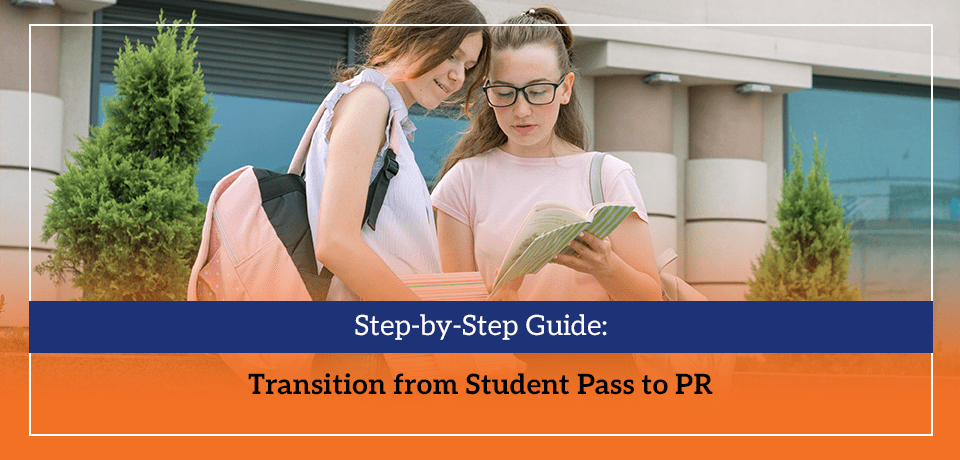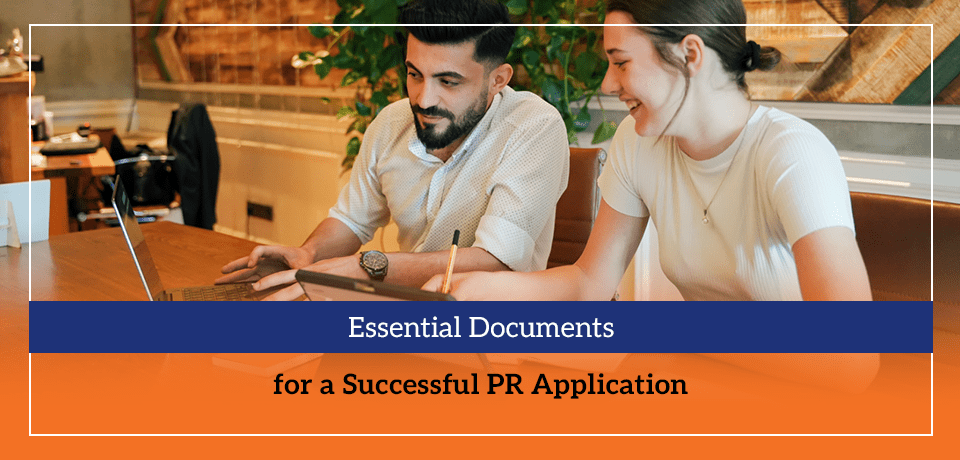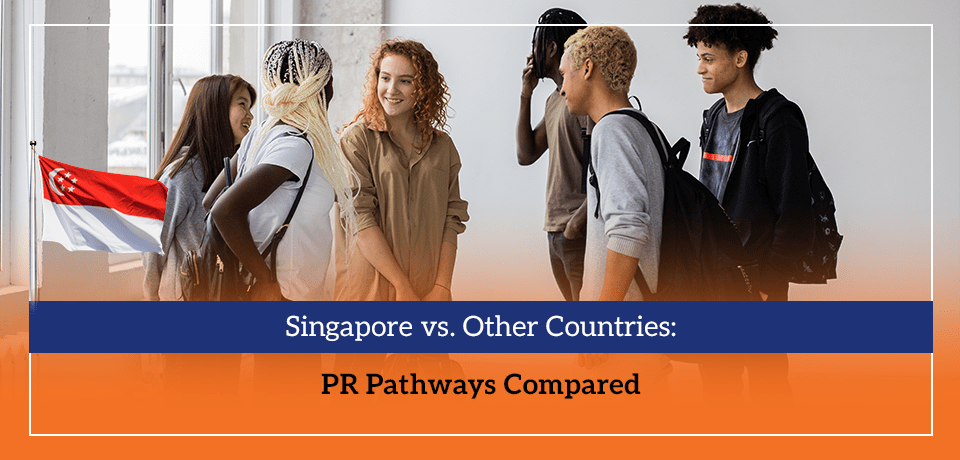Are you finishing a degree in Singapore and wondering what it really takes to stay long-term? How to Get PR in Singapore After Study often comes down to how Immigration & Checkpoints Authority (ICA) reads your Student’s Pass history, Ministry of Manpower (MOM) work status, and the evidence you can show through an Employment Pass or S Pass pathway.
This guide focuses on Singapore PR eligibility and the PR application process Singapore graduates face, using the same section-by-section flow as the outline. If you’re asking, “Can international students apply for PR in Singapore after graduation?”, you’ll get a clear way to compare routes like the PTS scheme, map timing around pass changes, and sort the documents that carry weight. Rules and outcomes can shift, and cases vary, so practical details matter. Many applicants lose months by filing with weak job proof or inconsistent paperwork.
Why Singapore is a Top Choice for Post-Study PR
What makes Singapore so attractive for international graduates seeking permanent residency? Singapore stands out as one of the best places for international students who want to stay after graduation.
Strategic Advantages for International Graduates
NUS and NTU, Singapore's top schools, are known worldwide (ranking 11th and 36th in 2024). This gives their graduates a strong edge in PR applications.
Key Insight: The data from the 2024 Joint Autonomous Universities Graduate Employment Survey (JAUGES) shows that international graduates from Singapore universities have an 87.1% employment rate within six months of graduation.
The benefits of Singapore PR for international students go beyond just living there:
- Cheaper healthcare (30-40% lower than non-resident rates)
- CPF savings options (Singapore's national savings system)
- Right to buy property
- School subsidies for children
Eligibility Criteria for PR After Studying in Singapore
What pathways can international graduates take to get PR in Singapore? You need to know the different ways to get permanent residency. There are four main routes:
Route 1: Employment Pass (EP) Holders
Most skilled graduates get PR through an Employment Pass (EP) or S Pass with these needs:
- A minimum salary of S$5,000 per month (as of 2025)
- Higher pay needed for finance jobs (S$6,000)
- Jobs in high-demand fields (tech, finance, healthcare)
- Steady work history with tax payments
- Bachelor's degree from a good school
The Employment Pass to PR change usually needs 2-3 years of work in Singapore before you can apply.
Route 2: PTS Scheme for Graduates
The PTS scheme in Singapore is for graduates with special skills:
|
Field
|
Typical Profile
|
Average Time to Process
|
|
STEM
|
Science/Tech degrees
|
4-6 months
|
|
Business
|
Finance jobs
|
5-7 months
|
|
Healthcare
|
Medical, nursing
|
4-6 months
|
|
Digital
|
AI, cybersecurity
|
3-5 months
|
Route 3: Family Sponsorship
Family sponsorship PR Singapore applies to:
- Spouses of Singapore citizens or PRs (62% approval rate)
- Children under 21 with a Singaporean parent
- Elderly parents of Singapore citizens
Family ties help your application. Family-sponsored applications have a higher success rate.
Route 4: Global Investor Program
For graduates with business skills, the Global Investor Program Singapore offers a faster option:
- Minimum investment of S$2.5 million in a business
- Proven business track record
- Detailed business plan
- Promise to create local jobs
Important Note: The GIP is a highly selective program, and the number of investors granted permanent residency (PR) through it is a "very, very low percentage".

Step-by-Step Guide: Transition from Student Pass to PR
How can you move from student to permanent resident? Getting PR after your studies needs careful planning:
Step 1: Graduate and Secure Employment
After finishing school, your path from Student Pass to PR Singapore starts with:
- Getting a job related to what you studied
- Having your employer sponsor you for a work pass
- Making sure your job meets the minimum salary needs
- Keeping a valid immigration status throughout
Step 2: Build Work Experience
The ICA likes applicants with:
- 2-3 years of steady work in Singapore
- Career growth
- Regular tax payments
- Professional achievements
During this time, keep a clean record and avoid legal issues that could hurt your Singapore PR eligibility after study.
Step 3: Prepare and Submit PR Application
The ICA PR application process involves:
|
Stage
|
Timeline
|
Key Requirements
|
|
Preparation
|
2-4 weeks
|
Gathering documents
|
|
Online Submission
|
1-2 days
|
Creating an e-PR account
|
|
Initial Processing
|
2-3 weeks
|
Application review
|
|
Biometrics
|
1 day
|
In-person appointment
|
|
Final Review
|
4-6 months
|
Background checks
|
|
Decision
|
-
|
Approval or rejection
|
Application Tip: Most applications through the PTS scheme take 4-6 months to process. The Singapore PR processing time can change based on how many people apply.
Understanding Singapore's Work Visa Requirements
What type of work visa should you get to improve your PR chances? Before applying for PR, most graduates need to get the right work visa:
Employment Pass (EP)
The EP is for:
- Professionals earning at least S$5,000 monthly
- Manager-level positions
- People with good qualifications
EP holders usually have the best path to PR, especially in fields like technology and healthcare.
S Pass vs. Personalised Employment Pass
Understanding your options:
|
Work Pass Type
|
Monthly Salary Needed
|
Valid For
|
PR Chances
|
Quota Limits
|
|
Employment Pass
|
S$5,000+
|
1-2 years
|
Strong after 2-3 years
|
No quota
|
|
S Pass
|
S$3,000+
|
1-2 years
|
Medium after 3+ years
|
Company quota applies
|
|
Personalized EP
|
S$12,000+
|
3 years
|
Strong if high earning
|
No quota
|
The S Pass vs Employment Pass choice can greatly affect your PR chances. EP holders have higher approval rates.

Essential Documents for a Successful PR Application
What documents will strengthen your PR application? Your application package must be complete and well-organised:
Mandatory Documents
The PR document checklist for Singapore includes:
- Valid passport and current pass
- Birth certificate
- Educational certificates
- Employment letter (with position and salary)
- Recent payslips (at least 6 months)
- Income tax statements (Notice of Assessment)
- Resume showing work experience
- Passport-sized photos (taken within the last 3 months)
Strengthening Your Application
Beyond basic requirements, consider including:
Application Tip: Applications with proof of community involvement have higher approval rates.
- Community involvement proof (integration tips for PR Singapore)
- Professional achievements
- Skills certificates
- Recommendation letters
- Proof of local assets or investments
Financial Proof and Integration Tips
How important are financial stability and cultural integration to your PR application? Financial stability greatly influences the PR approval rate in Singapore.
Income Requirements
While ICA doesn't publish an official minimum, applications are stronger with:
- Single applicants: Annual income over S$60,000
- Family applications: Combined income over S$90,000
- Steady income growth over time
For context, the median yearly income for university graduates in Singapore was about S$4,500 in 2023.
CPF Contributions
CPF contributions for PR are required once approved:
- Year 1: PRs contribute 5%, and employers contribute 4%.
- Year 2: PRs contribute 15%, and employers contribute 8%.
- Year 3 onward: PRs contribute the full rate, which varies based on age, but for those aged 55 and below, it's 20% employee, 17% employer.
CPF is Singapore's mandatory savings system that helps residents save for retirement, housing, and healthcare.
Integration Strategies
Showing cultural integration improves approval chances:
- Learning basic Mandarin, Malay, or Tamil
- Joining community events
- Volunteering with local groups
- Understanding Singapore's history
- Building networks with Singaporean citizens
Cultural Insight: Applicants who join at least one community organisation for 6+ months have much higher approval rates.
Common Challenges & How to Overcome Them
What obstacles might you face in your PR journey, and how can you address them? Knowing potential roadblocks helps in preparing better applications:
High Competition in Key Sectors
Competition is tough, especially in crowded fields. Consider:
- Focusing on emerging sectors like AI and cybersecurity
- Developing niche expertise
- Getting additional qualifications in high-demand jobs in Singapore
- Building leadership experience
The Ministry of Manpower regularly updates its list of skills in demand.
PR Rejection Reasons Singapore
Common causes for rejection include:
|
Rejection Factor
|
How Common
|
How to Fix It
|
|
Not enough income
|
Very Common
|
Aim for a higher salary
|
|
Limited integration
|
Common
|
Join community activities
|
|
Incomplete documents
|
Common
|
Use a checklist
|
|
Security concerns
|
Uncommon
|
Maintain a clean record
|
|
Policy changes
|
Variable
|
Stay updated
|

Singapore vs. Other Countries: PR Pathways Compared
How does Singapore's PR process compare to other popular destinations? Understanding how Singapore compares to other countries helps in setting realistic expectations:
Approval Rates
Estimated PR approval rates vary significantly:
|
Country
|
Approval Rate
|
Processing Time
|
Minimum Stay Needed
|
|
Singapore
|
30-35%
|
4-6 months
|
2+ years recommended
|
|
Australia
|
40-45%
|
8-12 months
|
Varies by visa class
|
|
Canada
|
45-50%
|
12-18 months
|
3 of 5 years' presence
|
|
New Zealand
|
35-40%
|
6-9 months
|
2 years on an eligible visa
|
|
UK
|
25-30%
|
6 months
|
5 years on an eligible visa
|
Benefits Comparison
|
Benefit
|
Singapore PR
|
Australian PR
|
Canadian PR
|
|
Healthcare
|
Subsidised public healthcare (30-40% less than non-residents)
|
Medicare coverage (universal system)
|
Provincial healthcare (wait times may vary)
|
|
Education
|
Subsidised rates for all levels
|
Domestic student rates
|
Domestic student rates with provincial variations
|
|
Employment
|
Full work rights, access to public sector jobs
|
Full work rights, some restrictions for government roles
|
Full work rights in all provinces
|
|
Social Security
|
CPF access (mandatory savings system)
|
Superannuation access (retirement fund)
|
Pension plan access (Canada Pension Plan)
|
|
Property Purchase
|
Can buy resale HDB with restrictions and 7.5% ABSD
|
No restrictions on property buying
|
No restrictions except in some provinces
|
|
Visa-free Travel
|
Limited (mainly ASEAN countries)
|
More extensive (includes EU, North America)
|
More extensive (includes EU, US reciprocity)
|
|
Path to Citizenship
|
2+ years as PR, renounce original citizenship
|
4 years with 1 as PR, allows dual citizenship
|
3 of 5 years physical presence, allows dual citizenship
|
|
Family Benefits
|
Limited sponsorship for parents
|
Broader family sponsorship options
|
Extensive family sponsorship program
|
|
Cost of Living
|
High (especially housing in central areas)
|
High in major cities, varies in regions
|
Varies widely by province and city
|
|
Job Market
|
Competitive, focused on specialised skills
|
Skills-based, regional variations
|
Province-based, diverse opportunities
|
Income and Integration
Singapore places higher emphasis on:
- Above-average income requirements
- Proven integration efforts
- Professional qualifications in strategic sectors
- Ability to contribute to economic growth

Frequently Asked Questions
How long does PR processing take in Singapore?
The typical Singapore PR processing time ranges from 4 to 6 months. Some applications may take up to 12 months during busy periods.
Can I apply for PR as a student without a job offer?
Generally, no. The ICA strongly prefers applicants with established employment and income history in Singapore. Fresh graduates should secure employment first.
Is there a quota for international student PR applications?
While official quotas aren't published, the ICA maintains a selective approach with approval rates estimated at 30-35% for qualified graduates.
Do PR holders need to serve National Service (NS)?
Male PRs below age 18 may need to serve NS. Second-generation male PRs (those whose fathers are PRs) are required to serve.
Can I include my parents in my PR application?
Parents of Singapore Citizens may apply under the Family Scheme. Parents of PRs typically don't qualify unless they meet separate eligibility criteria.
What's the difference between PR and citizenship?
PRs keep their original nationality while gaining most benefits of citizenship except voting rights. Citizenship requires giving up original citizenship in most cases.
Does Singapore allow dual citizenship for PR holders?
PR status allows keeping your original citizenship. Becoming a Singapore citizen requires giving up other citizenships in most cases.
How does marrying a Singaporean affect my PR chances?
Marriage to a Singaporean strengthens PR applications but doesn't guarantee approval. Spouse applications have about 35-40% approval rates compared to 30% for work-based applications.
Can I appeal if my PR application is rejected?
Yes, the PR appeal process in Singapore allows reapplication after six months. About 10% of successful PR holders were approved on their second application.
Can I get PR after studying in Singapore?
Yes, some graduates do. A degree alone rarely leads to Permanent Resident status. Immigration & Checkpoints Authority (ICA) looks at your full profile, such as job type, work pass, income, skills, and ties to Singapore. Eligibility varies by profile, so use ICA guidance to check the route that matches your situation.
What is the easiest way to get PR in Singapore?
There is no “easy” route. The most common route for graduates is the Professionals/Technical Personnel & Skilled Workers (PTS) route after moving into a steady job on an Employment Pass or S Pass. A strong application usually shows stable work, consistent income, and clear contributions in Singapore.
Who is eligible for PR in Singapore?
ICA accepts applications from several groups, including working professionals on an Employment Pass or S Pass, selected students, and family members of Singapore Citizens or Permanent Residents. ICA reviews factors like employment, income, qualifications, family ties, and time spent in Singapore. Meeting basic criteria does not guarantee approval.
How many years to get PR in Singapore?
There is no official minimum number of years. PR is not automatic after a set period. Many applicants apply only after building a stable work record and a consistent profile in Singapore. Focus on readiness: steady job history, clear contribution, and clean documents that match your work pass records.
When can a S Pass holder apply for PR in Singapore?
There is no fixed waiting period stated by the ICA. A S Pass holder can apply once the profile looks stable and well-documented, with steady employment and income in Singapore. A rushed application with weak job proof or inconsistent paperwork often harms the case, so timing matters.
Conclusion & Actionable Next Steps
Getting PR in Singapore after study requires good planning, professional growth, and cultural integration. The journey may take several years, but it offers many benefits for those committed to building a future in Singapore.
Key Takeaways
Success in your PR application depends on:
- Getting stable employment in high-demand sectors
- Building meaningful community connections
- Showing financial stability and growth potential
- Understanding Singapore's values and social norms
- Keeping good documentation of your contributions
Resources for up-to-date information on PR applications:
Begin your journey toward Singapore PR for international students by focusing on academic excellence, followed by meaningful employment and community integration. With patience, the transition from student to permanent resident can be a rewarding milestone in your career.